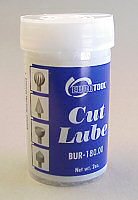SpasticTeapot
Limp Gawd
- Joined
- Sep 21, 2004
- Messages
- 188
I'm looking to build a few amplifier enclosures, a lot like these:
http://vikash.info/audio/chipamp-lm3886/
I have copper bar stock, and I'm looking to get the heatsinks. However, I'm still trying to figure out how I'm supposed to tap those tiny little holes into the ends of the aluminum bars.
Any suggestions, folks?
http://vikash.info/audio/chipamp-lm3886/
I have copper bar stock, and I'm looking to get the heatsinks. However, I'm still trying to figure out how I'm supposed to tap those tiny little holes into the ends of the aluminum bars.
Any suggestions, folks?
![[H]ard|Forum](/styles/hardforum/xenforo/logo_dark.png)

